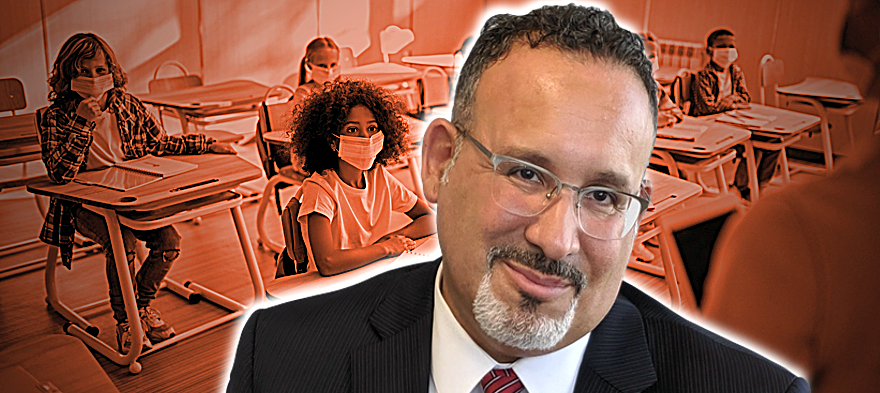
President Joe Biden has certainly kept busy during his first days in the Oval Office. He has issued a call for national unity, doubled down on his promise to reopen most schools in his first 100 days, and signed a flurry of executive orders on everything from climate change to immigration. However, with fanfare of the new Biden administration likely to continue occupying national attention in the coming weeks, education watchers must be careful not to lose sight of where the sausage really gets made: the local level.
It’s true that the president and Dr. Miguel Cardona, Biden’s nominee for education secretary, will have a powerful influence on national education policy upon his confirmation in the Senate. Together, they will tackle the complex challenge of opening schools amid a crippling pandemic and determining what role, if any, standardized testing will play in combating widespread learning losses. But thanks to the Every Student Succeeds Act (ESSA), the federal government has taken a step back from K-12 education in recent years, and states and local school districts have begun to reclaim some of the authorities formerly reserved for leaders in Washington.
The reality? [pullquote]Superintendents, school boards and state education agencies have far more influence on what’s happening in your children’s school than Biden or Cardona.[/pullquote] While our attention is rightly focused on this new administration’s plans to deal with the pandemic, we must be careful to not lose sight of the local decisions that impact our students more directly.
Take the "COVID Slide" for example. Though many agree that using data to analyze and support student progress is the key to eventually addressing learning losses, don't mistake Washington for your North Star. It's true that Biden and Cardona will get the last word on granting standardized testing waivers for the second year in a row. However, whether state tests happen this year or not, the real question is how effectively, if at all, school and district leaders have used data to inform their interventions.
Cities like Dallas and D.C. deserve praise for making student learning data a priority from the very beginning of this school year, making it easier to identify and target specific needs. With more emergency funding for schools likely coming down the pipe, now is the time to remember that [pullquote position="right"]local leaders play a much larger role than federal agencies in helping students get back on track.[/pullquote]
The same is true for school reopenings as well. Despite the good work being done across the country to prioritize teachers for vaccination—and thus help Biden achieve his goal of reopening American schools in his first 100 days— political clashes still threaten our federal leaders' best-laid plans. In Virginia, the Fairfax Education Association is petitioning district leaders to continue remote learning through Fall 2021. Meanwhile, Chicago students missed out on their scheduled return this week as the standoff between the district and local teachers union intensified. Figuring out how these issues will be resolved is anyone’s guess. But as for who? That’s a no-brainer.
There is convenience in blaming (or praising) Washington for the decisions that affect our lives, especially our children's education, but so much of the real action happens right in our own backyards. Wish Biden and Cardona the best of luck, but don't forget to pay attention, get involved and take action in your own community, too.
Garris Stroud is an award-winning educator and writer from Greenville, Kentucky whose advocacy and scholarship have been recognized by USA Today, U.S. News and World Report, Education Post, The Louisville Courier-Journal, and The Lexington Herald-Leader. He served as a Hope Street Group Kentucky State Teacher Fellow from 2017-2019 and became chair of the organization's editorial board in 2018. Stroud received bachelor's and master's degrees in education from Murray State University and is currently a doctoral student in educational leadership at the University of the Cumberlands, located in the heart of Kentucky's Appalachian region. Read more about his work on the Kentucky School Talk and Rural Ed Voices blogs.
If you have a child with disabilities, you’re not alone: According to the latest data, over 7 million American schoolchildren — 14% of all students ages 3-21 — are classified as eligible for special...
The fight for educational equity has never been just about schools. The real North Star for this work is providing opportunities for each child to thrive into adulthood. This means that our advocacy...
The story you tell yourself about your own math ability tends to become true. This isn’t some Oprah aphorism about attracting what you want from the universe. Well, I guess it kind of is, but...
Your donations support the voices who challenge decision makers to provide the learning opportunities all children need to thrive.
Ed Post is the flagship website platform of brightbeam, a 501(c3) network of education activists and influencers demanding a better education and a brighter future for every child.
© 2020–2024 brightbeam. All rights reserved.